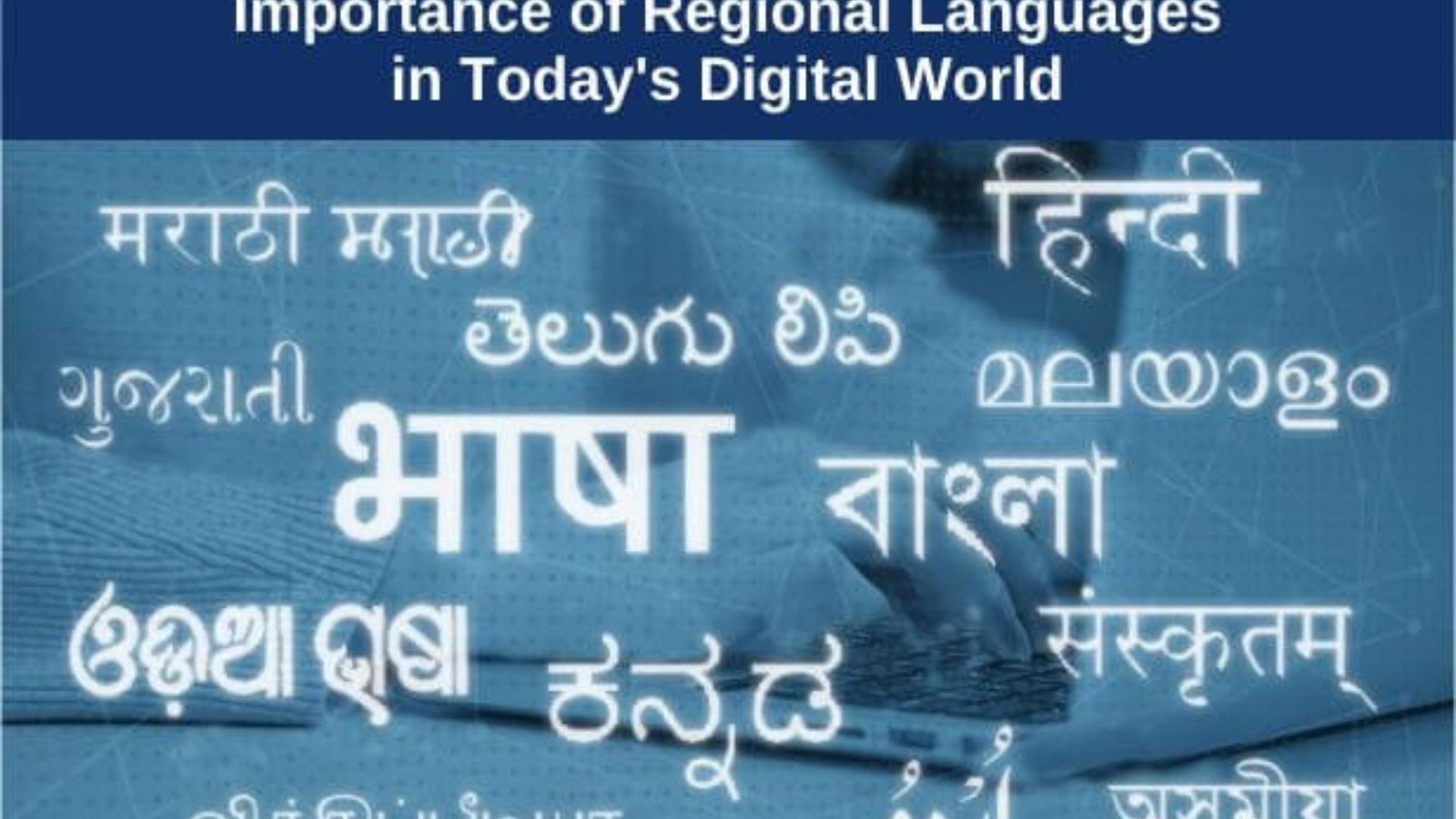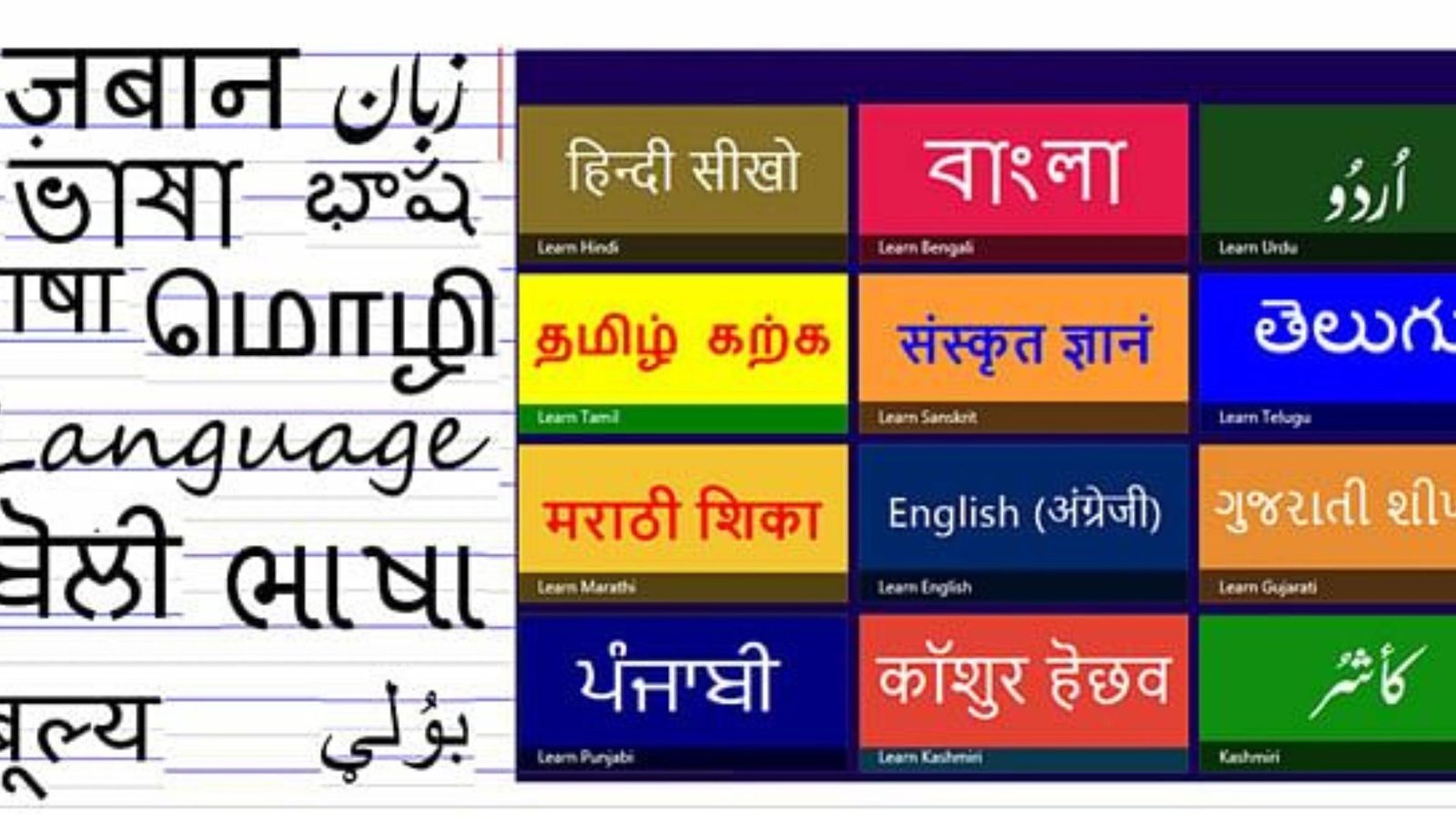Reasons to Learn Regional Indian Languages
Learning regional Indian languages can be a fulfilling and enriching experience. India is a country with a diverse linguistic heritage, and each region has its unique language that reflects its culture, traditions, and history. Whether you’re planning to travel, connect with people on a deeper level, or explore India’s rich cultural tapestry, learning regional Indian languages offers numerous benefits. In this article, we’ll discuss compelling reasons to learn regional Indian languages and how they can positively impact your life.
1. Connect with Local Communities
Building Relationships
Learning regional Indian languages helps you build genuine connections with local communities. When you speak someone’s native language, it breaks down barriers and fosters trust. Whether you’re travelling or living in a new region, speaking the local language makes it easier to form meaningful relationships.

Cultural Immersion
Understanding and speaking regional Indian languages allows you to immerse yourself fully in the local culture. You’ll be able to participate in traditional celebrations, understand local customs, and appreciate cultural nuances that would otherwise be missed.
2. Enhance Career Opportunities
Job Market Advantage
In today’s globalized world, knowing regional Indian languages can give you a competitive edge in the job market. Many companies value employees who can communicate with diverse populations, especially in regions with high linguistic diversity. Being multilingual can open up job opportunities in sectors like tourism, education, translation, and customer service.
Networking
Fluency in regional Indian languages expands your professional network. You can connect with colleagues, clients, and partners who speak these languages, leading to better collaboration and business opportunities. It also demonstrates your commitment to understanding and respecting different cultures.
3. Explore Rich Literary Traditions
Regional Literature
India has a wealth of literature in its regional languages. By learning these languages, you can access a vast array of poetry, novels, plays, and folklore that offer insights into the region’s history, philosophy, and way of life. Reading literature in its original language provides a deeper appreciation of the author’s intent and the cultural context.
Traditional Knowledge
Regional Indian languages are repositories of traditional knowledge, including medicinal practices, agricultural techniques, and local histories. Learning these languages allows you to tap into this knowledge, which is often passed down orally through generations.
4. Preserve Linguistic Heritage
Language Preservation
By learning and using regional Indian languages, you contribute to their preservation. Many regional languages are at risk of fading away as younger generations shift to more dominant languages. Your efforts to learn and promote these languages help keep them alive for future generations.
Cultural Identity
Language is a crucial part of cultural identity. By learning regional Indian languages, you help maintain and celebrate the unique identities of different communities. This fosters a sense of pride and belonging among native speakers and supports cultural diversity.
5. Improve Cognitive Abilities
Mental Stimulation
Learning a new language is an excellent way to stimulate your brain. It enhances cognitive functions like memory, problem-solving, and critical thinking. Studies have shown that bilingualism can delay the onset of cognitive decline and improve overall mental agility.
Enhanced Multitasking
Being multilingual improves your ability to switch between tasks and manage multiple activities simultaneously. This skill is particularly beneficial in a fast-paced world where multitasking is often necessary.
6. Enjoy Travel Experiences
Travel Ease
Knowing regional languages makes travelling in India more enjoyable and less stressful. You’ll be able to navigate cities, understand signs, and ask for directions confidently. Communicating with locals in their language can also lead to unique travel experiences and opportunities that might not be available otherwise.
Deeper Exploration
Speaking the local language allows you to explore places off the beaten path. You can visit remote villages, understand local legends, and engage with the community on a deeper level. This enriches your travel experience and provides a more authentic understanding of the region.
7. Access Diverse Entertainment
Films and Music
India’s film and music industries produce content in various regional languages. Learning these languages allows you to enjoy movies, songs, and TV shows in their original form, enhancing your entertainment experience. You’ll appreciate the nuances of dialogue, lyrics, and cultural references better.
Theatre and Performance Arts
Regional Indian languages are integral to traditional theatre and performance arts. Understanding the language gives you access to a wide range of cultural performances, including folk dances, puppet shows, and classical music concerts, providing a richer cultural experience.
Conclusion
Learning regional Indian languages offers numerous benefits, from building personal and professional relationships to accessing rich literary traditions and preserving cultural heritage. It enhances cognitive abilities, makes travel more enjoyable, and allows you to enjoy diverse entertainment. By learning and promoting these languages, you contribute to their preservation and celebrate India’s linguistic diversity. So, take the step to immerse yourself in the beauty of regional Indian languages and experience the cultural richness they bring.



